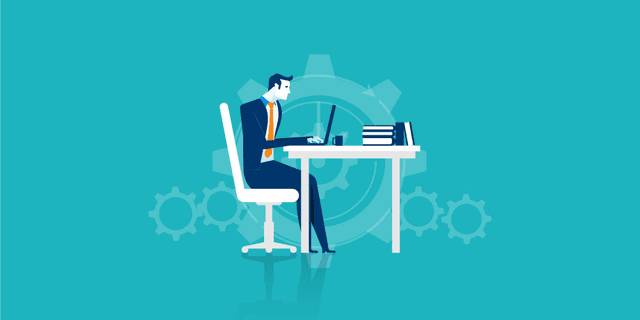How to Personalize Sales Training to Fix Knowledge and Skill Gaps
Products, customer behaviors, and industry dynamics change quickly in today’s sales environment. This means that even the most seasoned sales reps require ongoing knowledge and skill development. Every rep in your sales force has a different background, skills set, knowledge, and experience. Because of these variables, one size does not fit all when it comes to sales training. To provide training that meets your sales teams’ needs, it’s most effective to personalize sales training based on individual gaps in knowledge and skills. Complete the following steps to create these plans and see the best results.
Develop sales competency frameworks
Before you can identify skill and knowledge gaps for individual sales reps, you must first have a benchmark for comparison. A sales competency framework provides this by stating what skills, knowledge, and behaviors are expected. They help you identify gaps, simplify training establishment, and facilitate progress measurement. In case you missed it, we discuss how to go about developing these competencies below.
Evaluate knowledge and skill gaps
Once you have a definition of what your sales force needs to be able to do and what they must know, you are now ready to proceed. There are several ways to evaluate your team members for knowledge and skill gaps:
- Observation: Watching your sales reps demonstrate skills and behaviors, or discussing various key topics, is one way to complete this evaluation. This may be completed in the field, for example, on a ride-along or by role play in person or via video recordings.
- Assessments through task simulations: In this case, you may be focused on the rep’s ability to create a proposal or some other documentation. It could also be a method of determining their ability to effectively use software applications on the job. A mock scenario is provided when doing this and the staff member must complete the designated tasks to identify gaps.
- Self-assessments: Asking your sales reps where they feel they need additional training is a helpful exercise when determining gaps. Revealing these gaps will serve to improve their effectiveness on the job.
- Quizzes: When measuring gaps in knowledge, quizzes and serious games are effective methods. Plus, they can be engaging and fun.
- Metrics: Reviewing performance data for individual reps will help you identify various training needs. This especially applies to weaknesses by stage of the sales process and levels of activity.
Create individualized sales training plans
After completing evaluations on individual sales reps, it is time to create their training plans. You should have a listing of where their skill and knowledge gaps exist. This is what training and coaching they need to receive. Prioritize these areas and direct them to the corresponding resources. Be sure to incorporate input from each individual, relating to areas they would like to develop. This will increase buy-in and commitment to the process.
Make them accountable
Provide clear expectations and well-defined goals. Your competency frameworks will help with this. You also want to observe and measure engagement in trainings provided. Obviously, if they don’t participate, they won’t progress.
Continuously monitor progress
Monitor participation and progress. Provide feedback as needed to facilitate growth. Certify reps on skills and knowledge to finalize each stage so they may advance to the next level.
Reevaluate and update sales training
Continuously cycle through this process to keep up with current training needs that correspond with product, customer, and market changes. Incorporate your reps’ personal goals into training plans to help motivate them. Guide them to additional training where appropriate and assist them with advancement as needed.
Now you know how to personalize sales training for individual skill gaps. This will ensure that training will be better understood and more easily applied on the job. It meets each rep where they are, building on their existing skills and knowledge. If you have a sales readiness platform, this process will be even easier. According to Gartner’s research, it will encourage knowledge retention by including continuous learning applications, which deliver small pieces of information or short courses and quizzes on a regular (often daily) basis. Plus they’ll be available on mobile devices for easy participation.


